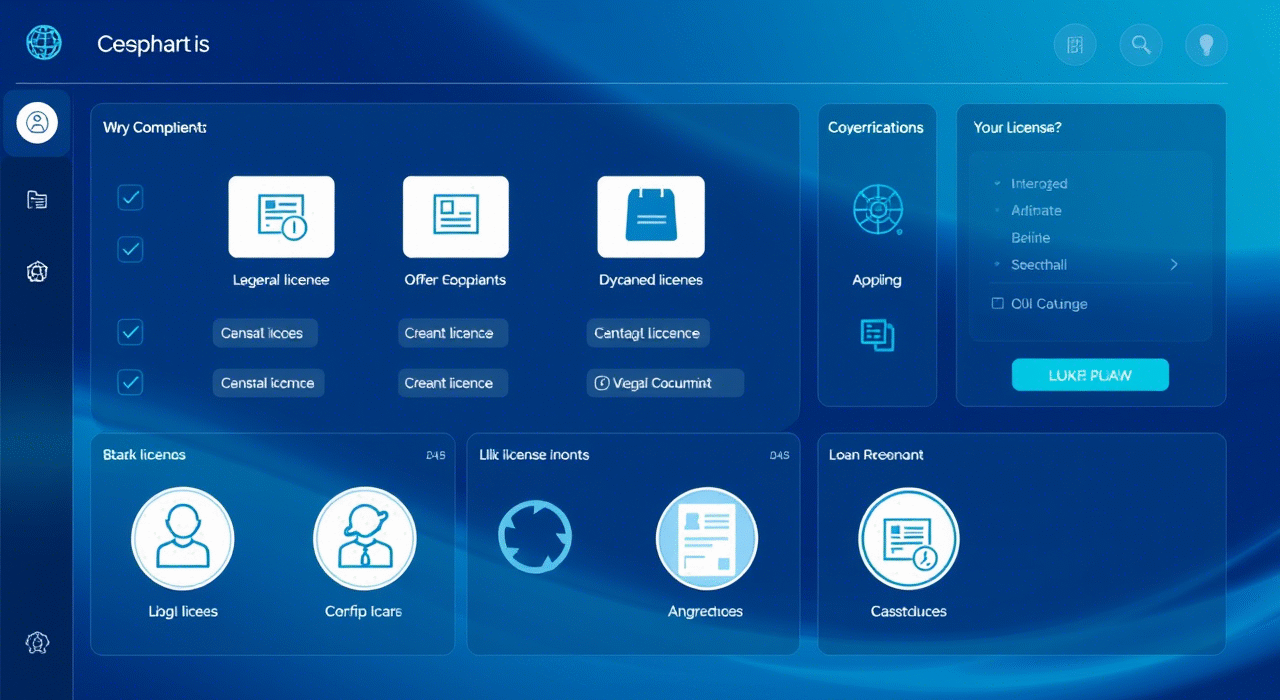Introduction: Why Compliance Vocabulary Matters
Entering the gambling industry in 2025 is like stepping onto a high-stakes chessboard—one wrong move, and you could face penalties, fines, or worse: license suspension.
Compliance is not just a checklist—it’s a culture.
New operators often underestimate how important it is to understand the terminology that shapes legal obligations, partner expectations, and player trust. This article demystifies essential compliance terms every new operator must know to stay safe, credible, and profitable.
🛡️ 1. KYC (Know Your Customer)
Definition:
A regulatory requirement where operators must verify the identity of their users before they can deposit, withdraw, or even play.
What It Means for You:
KYC helps prevent fraud, underage gambling, and money laundering. It usually involves collecting a player’s ID, proof of address, and payment verification.
⚠️ Failure to enforce KYC can lead to severe fines and blacklisting in regulated markets like the UK, Malta, and Ontario.
💼 2. AML (Anti-Money Laundering)
Definition:
A framework of laws and procedures designed to stop criminals from disguising illegally obtained funds as legitimate income.
Key Concepts Within AML:
- Source of Funds (SoF): Proof that a player’s money is clean.
- Suspicious Activity Reports (SARs): Must be filed when irregular patterns are detected.
- PEPs (Politically Exposed Persons): Require enhanced scrutiny due to potential risk of corruption.
Why It Matters:
AML is a cornerstone of global gambling compliance. Regulators will expect full documentation and internal processes to monitor it.
🧑⚖️ 3. Licensing Jurisdiction
Definition:
The regulatory body or territory under which your gambling business is legally licensed to operate.
Top Jurisdictions in 2025:
- MGA (Malta Gaming Authority) – Gold standard in Europe.
- UKGC (UK Gambling Commission) – Very strict, high trust.
- AGCO (Alcohol and Gaming Commission of Ontario) – Emerging, but robust.
- Curaçao – Easier entry, tightening oversight.
- Isle of Man / Gibraltar – Stable, long-standing regulators.
Always match your license jurisdiction with your target market to stay compliant.
🔐 4. Player Due Diligence (PDD)
Definition:
A broader version of KYC that includes monitoring player behavior and financial transactions over time.
Levels of Due Diligence:
- Simplified Due Diligence (SDD): For low-risk, low-amount users.
- Customer Due Diligence (CDD): Standard level—applies to most users.
- Enhanced Due Diligence (EDD): For high-risk or high-value players.
Why It’s Vital:
It helps identify high-risk behavior, suspicious patterns, and VIPs who need special attention or restrictions.
📉 5. Risk-Based Approach (RBA)
Definition:
A compliance strategy that prioritizes actions based on the risk level associated with each player or transaction.
Implementation Includes:
- Risk-scoring systems for transactions
- Segmented player monitoring
- Flexible thresholds for alerts
Regulators increasingly expect a dynamic, rather than static, approach to compliance.
📜 6. Terms and Conditions (T&Cs)
Definition:
The legally binding document players must agree to before using your platform.
Critical Areas to Cover:
- Wagering requirements
- Bonus abuse policy
- Withdrawal conditions
- Jurisdictional restrictions
- Self-exclusion and responsible gaming policies
Tip:
T&Cs should be localized and updated regularly. Unclear or predatory clauses can result in player disputes—and regulator scrutiny.
🚫 7. Excluded Territories / Geo-Blocking
Definition:
Jurisdictions where you are legally forbidden from accepting players.
Why It Matters:
Operators must use IP-blocking, payment filtering, and KYC checks to prevent access from banned regions (e.g., US players on UKGC sites).
Failure Consequences:
- Regulatory action
- Blacklisting
- Criminal charges in extreme cases
👨⚕️ 8. Responsible Gambling (RG)
Definition:
A set of practices ensuring that players gamble within their limits and are protected from harm.
Core Components:
- Deposit/loss/time limits
- Self-assessment tools
- Cooling-off periods
- Self-exclusion programs
- Reality checks (on-screen timers)
Most licenses now mandate responsible gambling features.
🚨 9. Self-Exclusion Schemes
Definition:
Tools that allow players to voluntarily block themselves from gambling for a specified period.
Key Programs:
- GAMSTOP (UK)
- Spelpaus (Sweden)
- PlayBreak (Ontario)
Operator Responsibility:
Must integrate these APIs into your backend and honor all exclusions immediately.
📉 10. Source of Wealth (SoW)
Definition:
Beyond just where the money came from, SoW seeks to understand how a player acquired their overall wealth (e.g., occupation, inheritance, investments).
High-Risk Triggers:
- Large unexplained deposits
- Cryptocurrency conversions
- VIP/high roller activity
Especially important under Enhanced Due Diligence rules.
💰 11. Bonus Abuse
Definition:
Manipulating welcome offers or ongoing bonuses via multiple accounts, collusion, or exploiting T&Cs loopholes.
Common Tactics:
- Multi-accounting
- Arbitrage betting
- Playing only with bonus funds, then cashing out
Your Role:
Use fraud prevention tools, enforce KYC early, and clearly define abuse in your bonus terms.
🧾 12. Reporting Obligations
Definition:
Legal requirements to file reports with regulators, tax authorities, or compliance agencies.
Types Include:
- Monthly game fairness reports
- AML audits
- Transaction logs
- SAR filings
Tip:
Automate reporting as much as possible. Regulators love transparency and hate excuses.
🧠 13. GDPR / Data Privacy
Definition:
A European regulation governing how personal data is collected, processed, and stored.
Your Responsibilities:
- Obtain consent for data collection
- Secure user data
- Provide deletion rights (right to be forgotten)
- Avoid unnecessary data storage
Fines for Breach:
Can reach €20 million or 4% of global turnover—whichever is higher.
🧰 14. Compliance Officer (CO)
Definition:
A designated person responsible for ensuring all regulatory requirements are met.
Their Duties Include:
- Overseeing AML and RG protocols
- Training staff
- Responding to regulator queries
- Submitting reports
Many jurisdictions require you to name a CO in your license application.
📅 15. License Renewal & Audit
Definition:
Periodic evaluation of your platform, systems, and procedures by the licensing authority.
Be Prepared For:
- Game fairness testing
- Transaction audit trails
- Internal policy reviews
- Complaints log examination
Tip:
Treat audits as opportunities to strengthen trust and credibility—not just checkboxes.
Conclusion: Know the Language, Avoid the Landmines
For new operators, compliance can feel like a black hole of legalese and bureaucracy. But knowing these 15 foundational terms will help you navigate the complexity with confidence. Whether you’re seeking your first license, launching in a new market, or scaling internationally, a clear grip on the vocabulary keeps your business not just operational—but bulletproof.











